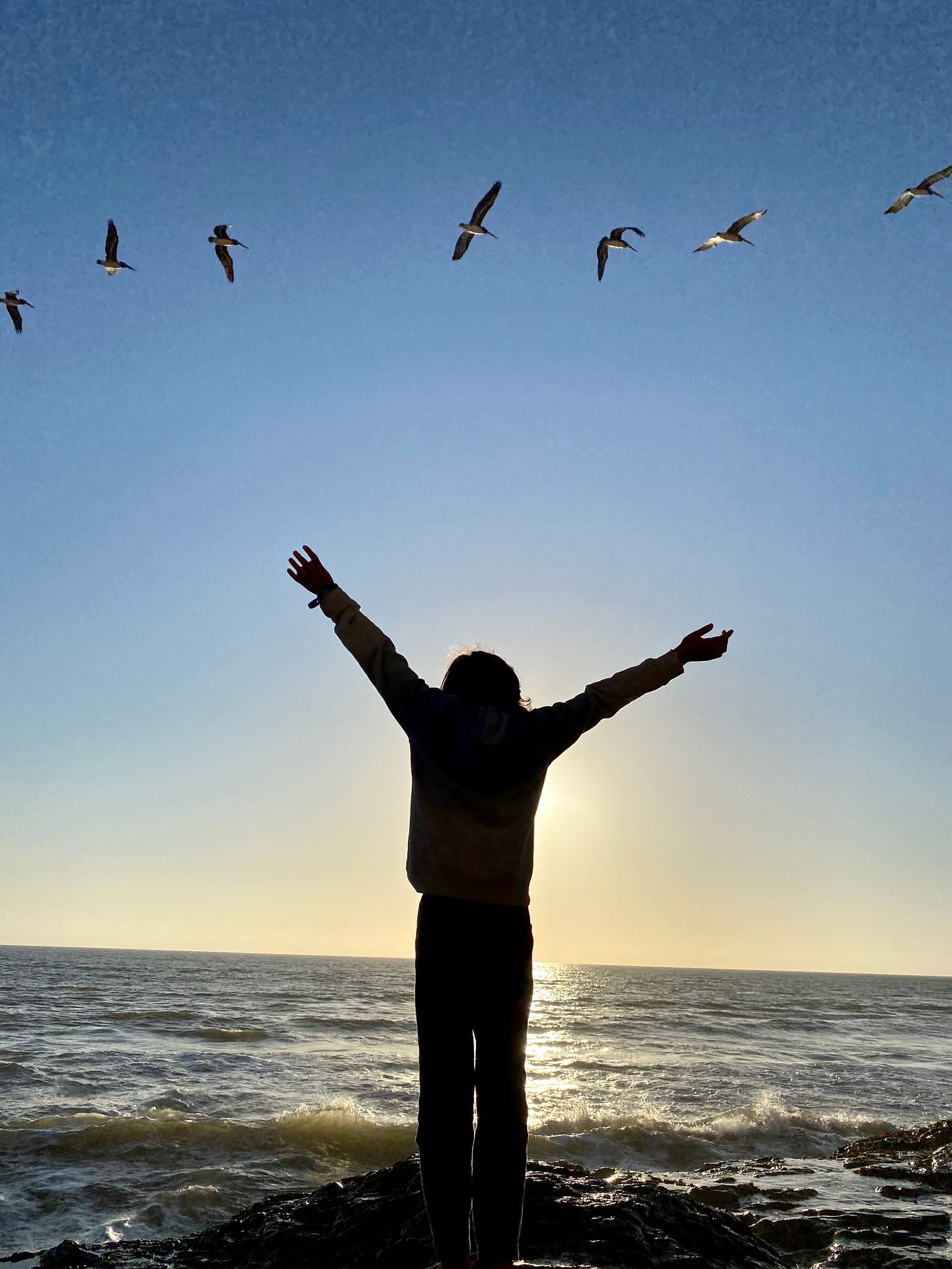ClearLife :: TGIF :: Tuning Into Our Inner Landscape
Weekly Drop || #7
“The intuitive mind is a sacred gift, and the rational mind is a faithful servant. We have created a society that honors the servant and has forgotten the gift.”
— Albert Einstein
Bird Songs
Ever since I was a child, I've been captivated by birds. Recently, I learned a bit about the remarkable role they play in the success of our own human species.
As it turns out, the frequency range of human hearing is between 20 Hz and 20,000 Hz, with our ability to hear higher frequencies diminishing as we age. Interestingly, most bird songs fall within the frequency range of 1,000 Hz and 8,000 Hz, which places them in the sweet spot of human hearing.
Acoustic ecologist Gordon Hempton explains:
“I was curious about the human range of sound . . . it’s a perfect match for bird song . . . If we hear bird song, then we’re also listening to an area that has food, water, and an extended favorable season long enough to raise the young off the nest . . . Bird song is the number one indicator of habitats prosperous for humans.” - BirdNote
I was reminded of this on a run in the desert just south of Santa Fe this week. The earth and grass were parched and the sun was blazing down on us, mercilessly. I had a flash of regret about not drinking enough water before heading out. Sure enough, we eventually heard and saw birds and then within moments came upon a shaded oasis by a spring mid-mountain. The respite from the arid surroundings was just enough to restore us for the journey back.
It's no wonder that bird songs have a calming effect and evoke a universal sense of intuitive joy when heard. It makes perfect sense that our nomadic ancestors would have thrived by attuning themselves to the sounds of their surroundings. It was a matter of survival.
Our Internal Signals
In our modern world, following the sounds of nature to find healthy habitats is less relevant for most of us. Instead, we find safety and wellbeing by tuning into our own internal signals, our inner landscape. Hunches. Appetites. Aversions. Sensations of fatigue or energy that arise in certain environments, doing certain activities, around certain people. We intuitively know what is healthy for ourselves and our loved ones, and can follow these signals if we pay attention.
Yet, we often fail to listen—thanks to conditioning that compels us to persevere, be resilient, and “power through” our difficulties without pause. We don’t want to hear our inner voices or acknowledge the signs that inevitably arise well before crisis. We tune out the signals that we should slow down, take a break, and take care of ourselves despite our various ambitions and obligations.
“When we have been prevented from learning how to say no, our bodies may end up saying it for us.”
This quote is from Gabor Maté, as medical columnist for The Globe and Mail in 1993. Of course this body of work continues to expand and evolve with the support of his research and that of countless others, in many ways tapping into healing traditions that have existed across cultures for centuries. #following
My Life is in Danger? What a Relief.
Recently, I spoke with a professional colleague who shared a similar experience of having a serious health issue pause their busy life and career trajectory. As she was preparing for work one morning, she noticed that the right side of her face was paralyzed in the bathroom mirror. Her initial thought was, “Oh, it must be a stroke. Finally, I can take a break from work.”
Another friend recounted how her cancer diagnosis felt like a permission slip to prioritize self-care after decades of perfectionism amidst her Ivy League education and early career. “I could finally slow down and pursue the creative career I've always desired,” she commented.
In my own case, I had just begun an extended break from my corporate roles when I received the life-altering phone call: “invasive ductal carcinoma. Breast cancer. Stage 2B.” In that moment, a surprising voice echoed in my head, saying, “Now no one can question my decision. Taking time for me is not a questionable luxury but a necessity.”
In all of our cases, we’d been ignoring the guidance from our “inner landscape” for years. Something deep within us knew that something had to change. We’d all quietly endured intense chronic stress, finding ways to tune it out, each in our own way—nightly “social” drinking, perfectionism, eating disorders, workaholism, and more.
Curiously, these stories seem to come primarily from women. It’s no surprise considering the load we carry in today’s culture.
“[W]omen are socialized in many cultures to be caretakers, put other people’s needs before their own, and be passive. They worry about what other people think of them; they don’t want to displease or be seen as ‘difficult’ or ‘high maintenance.’ So, they say ‘yes’ and don’t make any waves.” -Sharon Martin, How Women Can Overcome People-Pleasing and Perfectionism
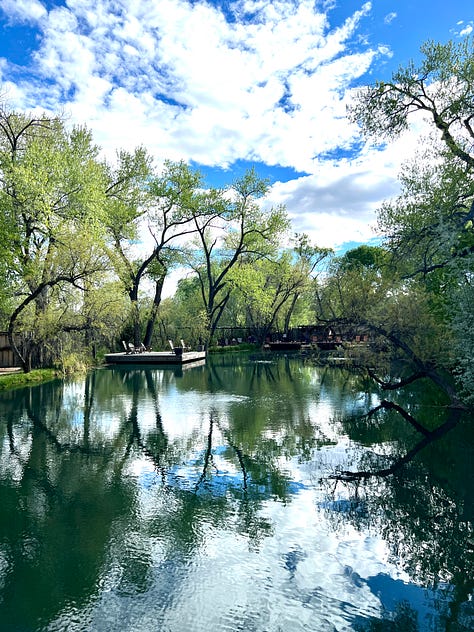
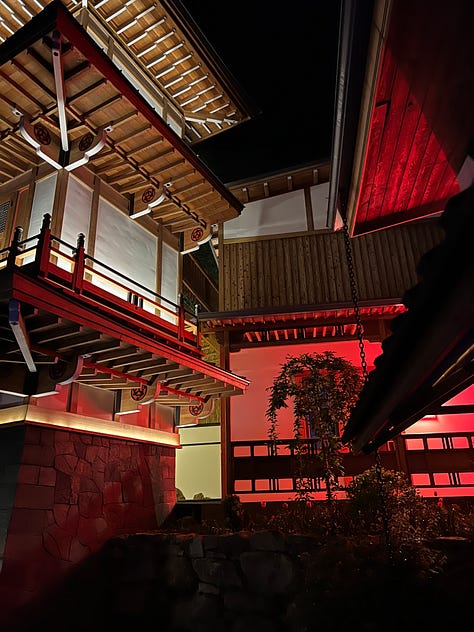
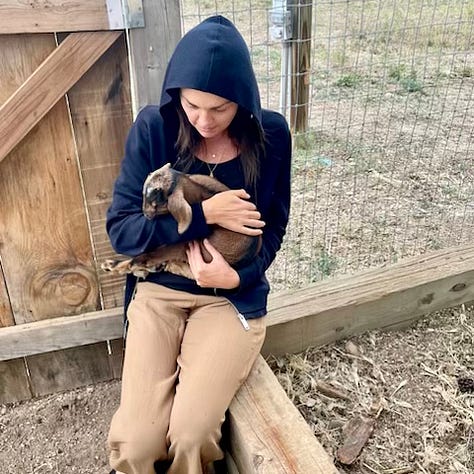
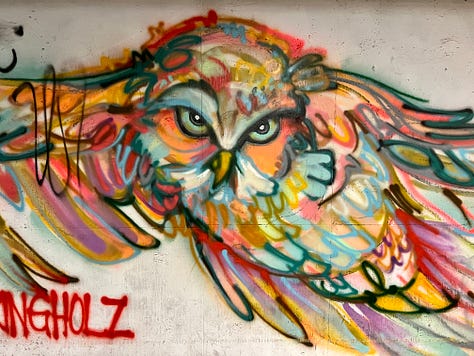
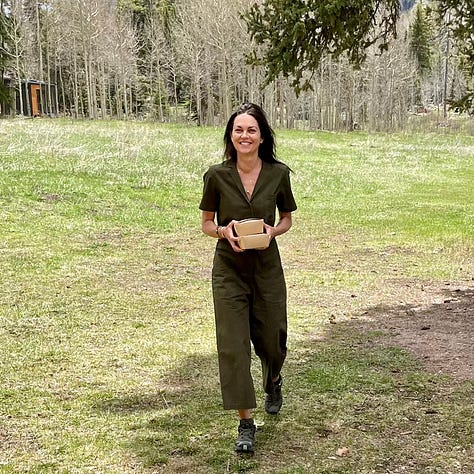
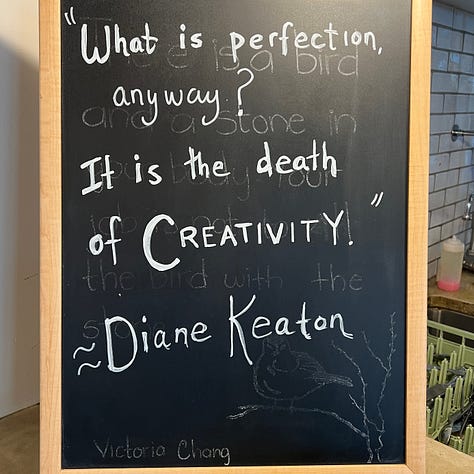
Tuning Into Our Inner Landscape
Like everything I write about on ClearLife, I aim to explore the choices we make and invite us to examine any conditioning that has influenced our perspectives and habits. In provoking awareness, things often shift without dramatic wake-up calls.
As I continue to peel away the layers and shed the armor I’ve accumulated along the way, it’s clear that I share a common experience of “powering through” difficulty and disregarding the cautionary whispers of intuition.
While perseverance and grit have their merits, it’s important to embrace the softer versions of ourselves too. Rest. Long heart-full conversations. A cup of tea while not doing anything else (this one is almost impossible for me, but I’m getting better!). A walk in nature, alone. It is in these more delicate places, this internal landscape, where creativity, receptiveness, vulnerability, sensuality, and our capacity for true connection with other human beings flourish.
. . . And what a landscape that is, birdsongs and all.
Love.
If you enjoy reading these TGIFs, your comments and 🤍 help my writing surface for other readers. 🙏🏼
Miscellaneous…
Pondering: the latest on AI and seeking the female voices on this important and controversial topic. In the meantime if you want to get caught up to speed on some of the buzzy stuff, here is an informative hour-long talk from Tristan Harris and Aza Raskin of The Center for Humane Technology. It’s worth a watch if you haven’t seen it yet. And did you know Sam Altman (the CEO of ChatGPT) is a meditator? Check out his Wisdom 2.0 interview where he touches on his equanimity reserves here.
Devouring: Lily’s Peanut Butter Filled Dark Chocolate Style Bar. Living sugar-free is an adventure and products like these (<1g sugar, stevia sweetened, all of the yumminess) are a welcome treat (when they’re not sold out!).
Looking forward to hosting: our first “Analog: A Digital Reset Weekend Retreat” with Soren, August 4-6, at 1440 Multiversity in Scotts Valley, CA. Early bird registration opened this week. Spaces are limited.



